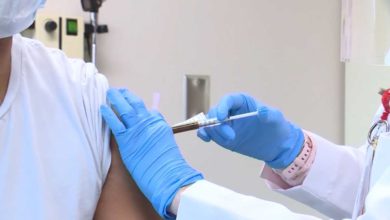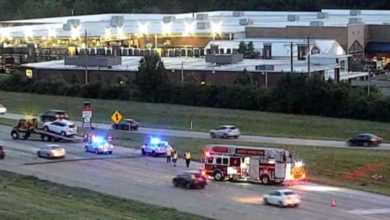
Many Americans are looking forward to normalcy as cases continue to fall around the country and vaccine rollout speeds up.
But in the Northeast, new cases are rising, and in New York, a variant officially marked as "a variant of interest" by the Centers for Disease Control and Prevention has been the dominant one there.
It's not only New York.
Cases of coronavirus variants are exploding across the United States, with more than 1,000 new cases reported in a five-day span, a USA TODAY analysis of CDC data shows.
The United States now has 4,855 known variant cases, up 27% since Thursday's report of 3,826 cases. The variants the CDC tracks — mostly B.1.1.7 first seen in the United Kingdom, but also B.1.351 that was first detected in South Africa and P.1 that was first identified in travelers from Brazil — can spread more easily, dodge some treatments and immunities, or both. Some variants also appear more likely to kill their victims.
But federal health officials have directed states to make all adults eligible to receive a coronavirus vaccination by May 1, offering signs of hope, White House senior adviser for COVID-19 response Andy Slavitt said Wednesday.
The White House says that more than 22 million vaccine doses will be distributed in the next seven days, a new high that would send the daily average over 3 million for the first time.
Also in the news:
►The European Union Wednesday launched a program to create a joint vaccination passport for its citizens, to hopefully be ready by June, reported The Washington Post.
►Wednesday, Massachusetts and Iowa announced plans to open up vaccination appointments to all adults next month, joining a growing list of states removing eligibility requirements as doses become more readily available.
►California Gov. Gavin Newsom said he is preparing for a likely recall election fueled by backlash to pandemic restrictions: "We will fight it. We will defeat it."
►More than 15% of U.S. adults are now fully vaccinated and 28% have had at least one dose, the Centers for Disease Control and Prevention says.
►Paraguayan President Mario Abdo Benítez survived an opposition attempt in Paraguay's congress to impeach him Wednesday over his handling of the coronavirus pandemic, while hundreds protested outside the legislature demanding his resignation.
? Today's numbers: The U.S. has over 29.6 million confirmed coronavirus cases and more than 538,000.deaths, according to Johns Hopkins University data. The global totals: 121 million cases and 2.68 million deaths. More than 147.5 million vaccine doses have been distributed in the U.S. and 113 million have been administered, according to the CDC.
? What we're reading: Could COVID-19 vaccination bring relief for long-haul sufferers? Researchers are finding out. Read the full story.
USA TODAY is tracking COVID-19 news. Keep refreshing this page for the latest updates. Want more? Sign up for our Coronavirus Watch newsletter for updates to your inbox and join our Facebook group.
Georgia spa shootings increase fear in the Asian American community
The three shootings at Atlanta-area spas that killed eight people, six of them Asian women, on Tuesday has dramatically increased the sense of fear in the Asian American community, which has already been experiencing an increase in violence and hate incidents.
Police arrested a suspect, Robert Aaron Long, 21, of Woodstock, Georgia, who told authorities that his actions were not racially motivated and that he frequented some of the spas where the shootings happened. Cherokee County Sheriff’s Office spokesman Capt. Jay Baker said Long viewed the spas, which are all listed on a prominent illicit massage parlor matching website, as "a temptation that he wanted to eliminate."
Even if the incident is not determined to be racially motivated, community leaders and experts say a series of violent attacks this year and a rise in hate incidents are fueled by racist rhetoric about the coronavirus pandemic and are "distinct but related trends."
"Asian American communities were already set on edge. We were alarmed by the rate of violence and hate directed towards us," said Russell Jeung, who created Stop AAPI Hate, which tracks incidents against Asian American Pacific Islander communities. "The shooting is again the worst type of violence we could go through. ... It can't continue."
-- N'dea Yancey-Bragg
Nevada governor widens COVID-19 vaccine eligibility starting next week
Nevada Gov. Steve Sisolak says Nevadans over the age of 16 with underlying health conditions will be eligible to receive the COVID-19 vaccine starting Monday, and that all residents over that age will be eligible to schedule vaccination appointments on April 5.
Sisolak unveiled the state’s latest vaccination timeline at a news conference in Carson City, Nevada, where he praised the move as “a critical step forward” in the inoculation effort.
“By continuing our strong push to vaccinate high-risk Nevadans, including seniors, individuals with underlying conditions, frontline workers, individuals with disabilities and Nevadans experiencing homelessness, we are working to protect the most vulnerable in our state,” he said in a statement released shortly after his remarks. “The state will work closely with our local partners to ensure we’re putting as many doses as possible into arms every day.
Wednesday's announcement puts the Silver State slightly ahead of the pace set by President Joe Biden, who has challenged states to open vaccine eligibility to all adults by May 1.
-- James DeHaven, Reno Gazette-Journal
Latino vaccinations lag behind whites across Texas, especially in capital city
About half the 770 people who have died of COVID-19 in Travis County, Texas – home of the state capital of Austin – have been Latinos. And yet, an analysis by the USA TODAY network shows only 22% of people vaccinated in the county have been Latinos, even though they made up one-third of the 1.2 million residents in 2019, according to census data.
In Travis County, white-majority ZIP codes had average vaccination rates 1.7 times higher than ZIP codes where people of color were in the majority. The disparity was most pronounced in ZIP codes with a Latino majority, and Travis County’s gap for Latinos was bigger than in all but three other large Texas counties: Cameron, Harris –where Houston is located — and Dallas.
Overall, in the 20 largest counties in Texas, ZIP codes with white, non-Latino residents in the majority had vaccination rates 1.3 times higher than other ZIP codes on average through the end of February. No Latino-majority ZIP code had a higher vaccination rate than white-majority ZIP codes, according to the analysis.
-- Sarah Asch and Jayme Fraser, Austin American-Statesman
Contributing: The Associated Press
Source link









